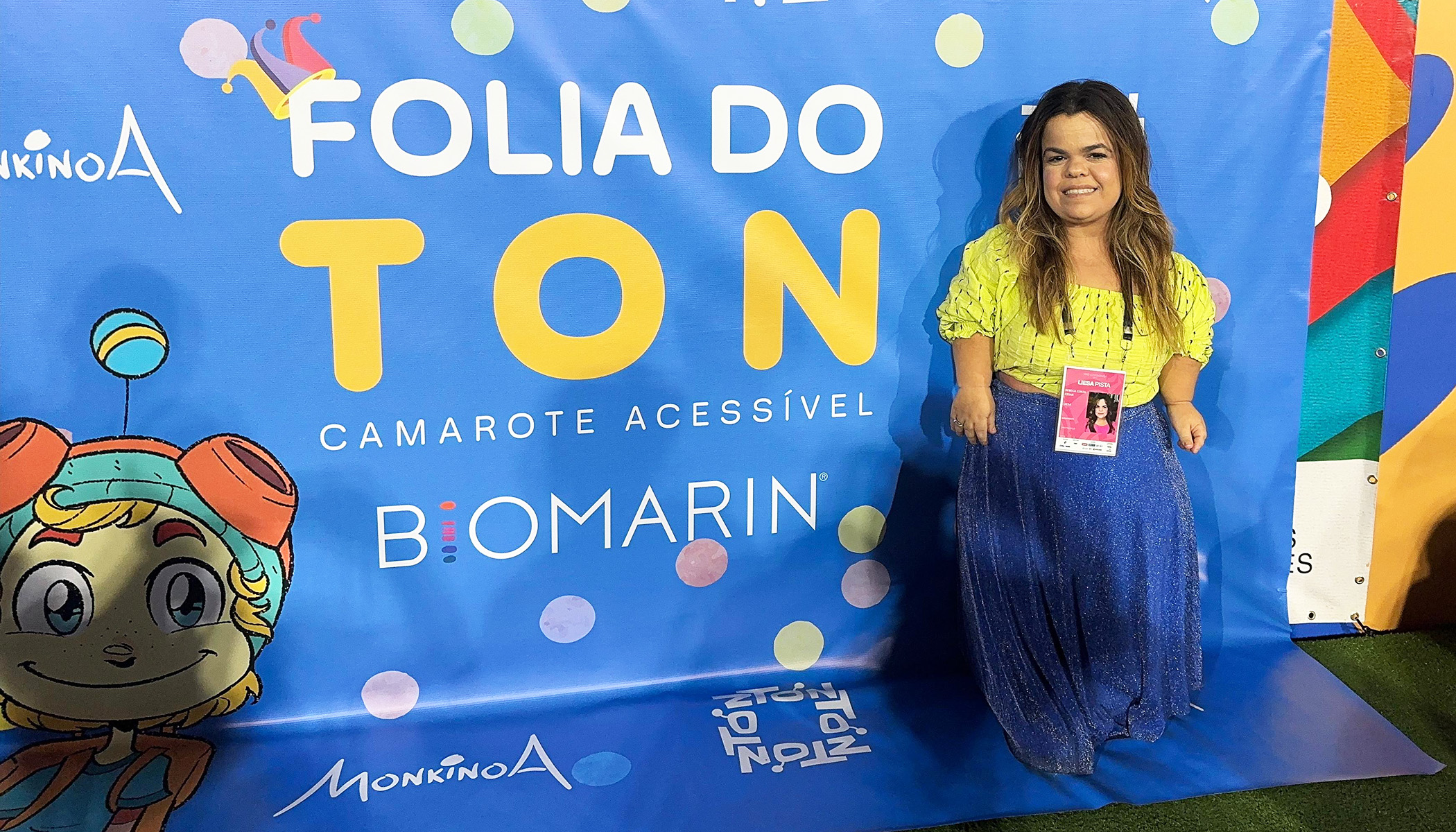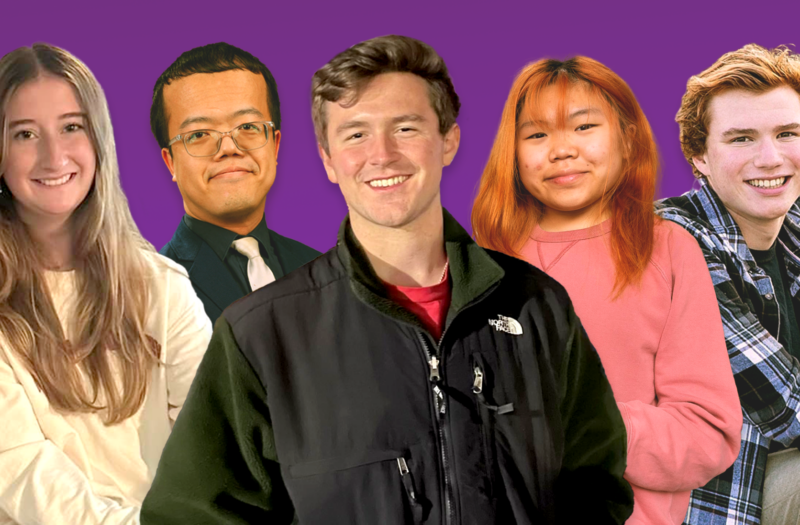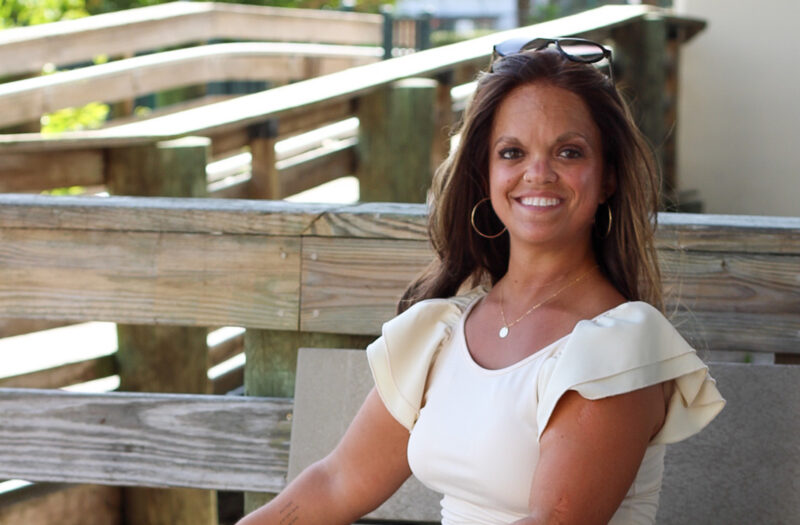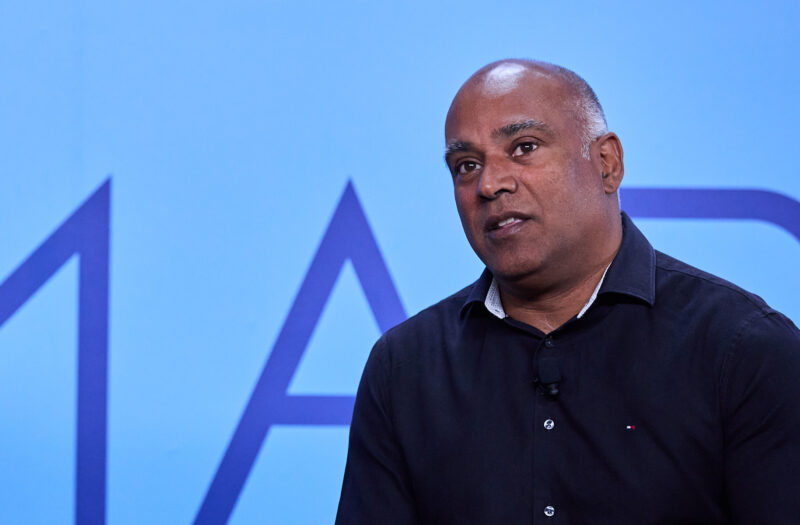Social Media Influencer Strives to Make Carnival Inclusive for All
October 25, 2024
For Rebeca Costa, Carnival has always been about much more than the costumes, music and dancing that have made the annual event held in Rio de Janeiro world famous.
“I have a Carnival spirit, and so does my family,” says Rebeca, who grew up attending Carnival at the Sapucai stadium that hosts the parade. “Carnival is the heart outside of my chest – the people are joyful and exude love.”
Rebeca, who is living with achondroplasia, never felt limited in her ability to enjoy all that Carnival has to offer. But as she grew up, she realized this was not necessarily the case for other people living with medical conditions or disabilities.
Today, Rebeca – a lawyer, influencer, consultant, podcast host and advocate – is using her voice to help make Carnival more inclusive and accessible. We spoke with Rebeca to learn more about her story, her advocacy and what she hopes to achieve in her work with Carnival organizers.
Q: Can you share a little bit about your journey with achondroplasia and how it has shaped your life?
My parents never formally introduced me to dwarfism, and they never sat down with me to discuss it. I don’t remember a conversation in which they said, “That’s your condition.” I often say that instead of going through a process of acceptance, I went through a process of recognition.
Something that this instilled in me that stays with me to this day is that, first and foremost, I am a woman; I am Rebeca. I am just like any other person, striving for what I want to be.
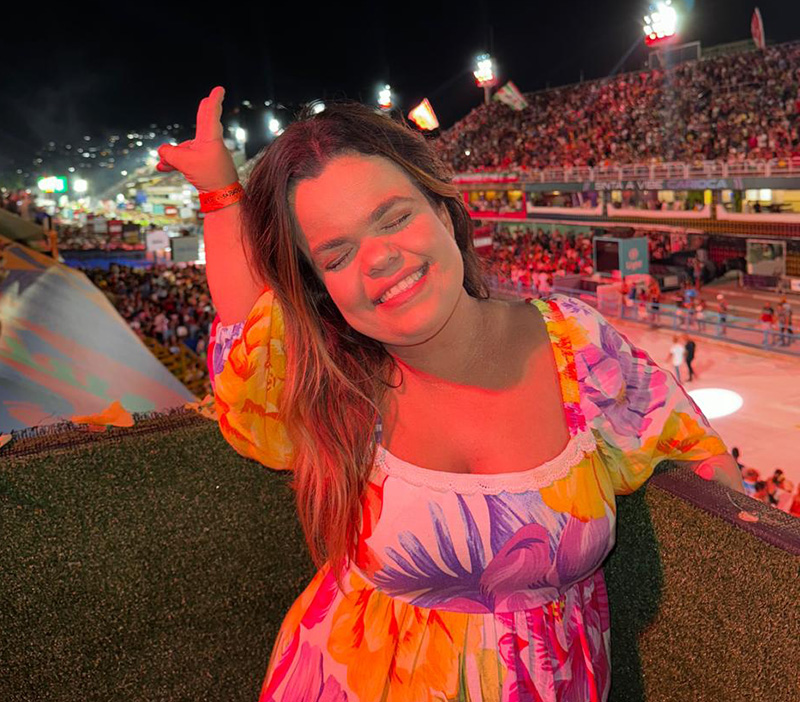
Rebeca at Carnival in 2023.
Q: What are some common misconceptions about achondroplasia and dwarfism that you wish more people understood?
There is a significant misconception that everyone with dwarfism has the same experiences and same needs. There are more than 400 types of dwarfism, which immediately breaks down that misconception. While we strive for equality, it’s essential to recognize that everyone can choose their own path without being compared solely by a diagnosis code.
For instance, I chose a career in law, became a public speaker and created my Instagram profile. But I could have chosen to do anything else. Our conditions don’t define us, so people need to stop limiting us based on our appearance. We are diverse.
Q: How did you become an advocate for accessibility and the dwarfism community?
I created my Instagram profile, @LookLittle, with the initial goal of boosting self-esteem for everyone – regardless of ability – and to present dwarfism in a positive light, focusing on education and sharing information. I was the first influencer with dwarfism to do this in Brazil. It was so rewarding to inspire others, and particularly girls, by sharing my story and perspectives. As time went on, Look Little grew into a company that now works in several areas, including consulting, public speaking and managing accessibility at major festivals and events.
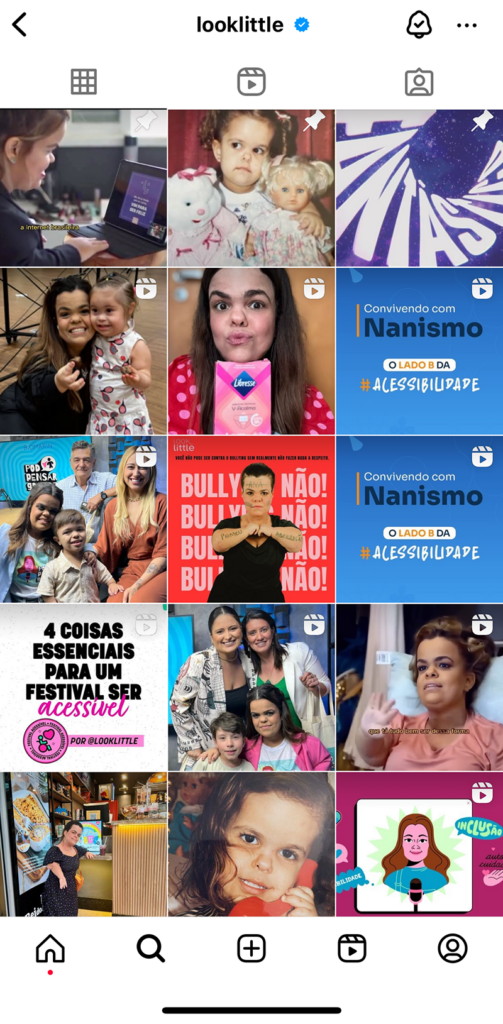
Rebeca created her Instagram profile to present dwarfism in a positive light. She now has more than 100,000 followers. Her social media presence served as a springboard to create a company focused on advocating for accessibility.
Q: What inspired you to focus on improving accessibility at Carnival?
I always celebrated Carnival with my parents as a child, but my perspective began to change as an adult, and I started getting invited as a “VIP.” Even with that level of influence, I had very limited access to the Sapucai stadium.
I was motivated to improve the situation at Carnival because I believe everyone deserves to experience the joy of this celebration, regardless of any medical conditions or disabilities. I have seen firsthand how accessibility issues limited participation for many. I want to ensure that people with disabilities can enjoy Carnival fully, just like I did. By working on accessibility initiatives, I aim to amplify the voices of individuals with disabilities and foster a culture of respect.
Q: What changes are being made because of your advocacy?
Through my collaboration with Liesa (an independent league of samba schools in Rio de Janeiro) and leading Carnival viewing areas such as Folia Tropical and Nosso Camarote, I established a strong relationship with Carnival leadership. I proposed several enhancements to make Carnival viewing sections more accessible for everyone. These improvements included lower bar counters, smaller steps, accessible restrooms, and other features.
In 2025, we are planning further improvements. Working with the organizers has been an incredible experience. The entire team listens to me and seeks reasonable solutions to make accessibility tangible.
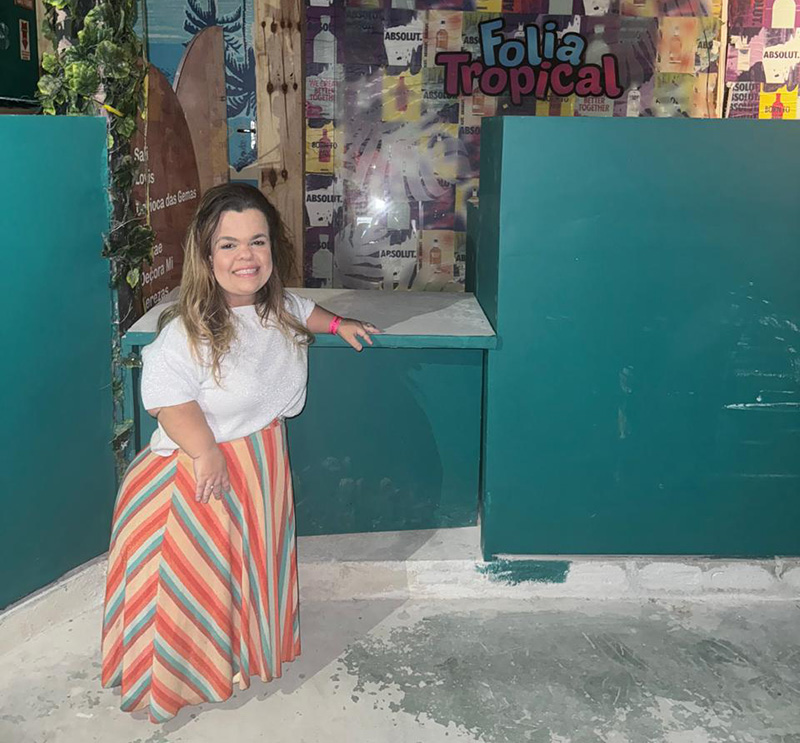
Among the accessibility improvements Rebeca helped implement at Carnival were lower bar counters, as well as smaller steps, accessible restrooms and other features.
Q: What do you hope to see in society’s approach to accessibility and inclusion in the next five to 10 years, at Carnival and in the world at large?
Respect is No. 1, without a doubt. I have experienced several situations of ableism, lack of accessibility and discrimination in my life. It feels the worst when it comes from a place of disrespect. I hope that in five years there is more understanding and respect for people with disabilities, because we are already behind schedule.
As for the future of Carnival in Brazil, as a woman with dwarfism, my hope – my purpose – is to welcome everyone to the celebration and enable the same access and rhythm of Carnival for everyone. Accessibility means access for all, adapted to the needs of everyone. There is still a lot to study and lots of work to be done to ensure no one is left out.
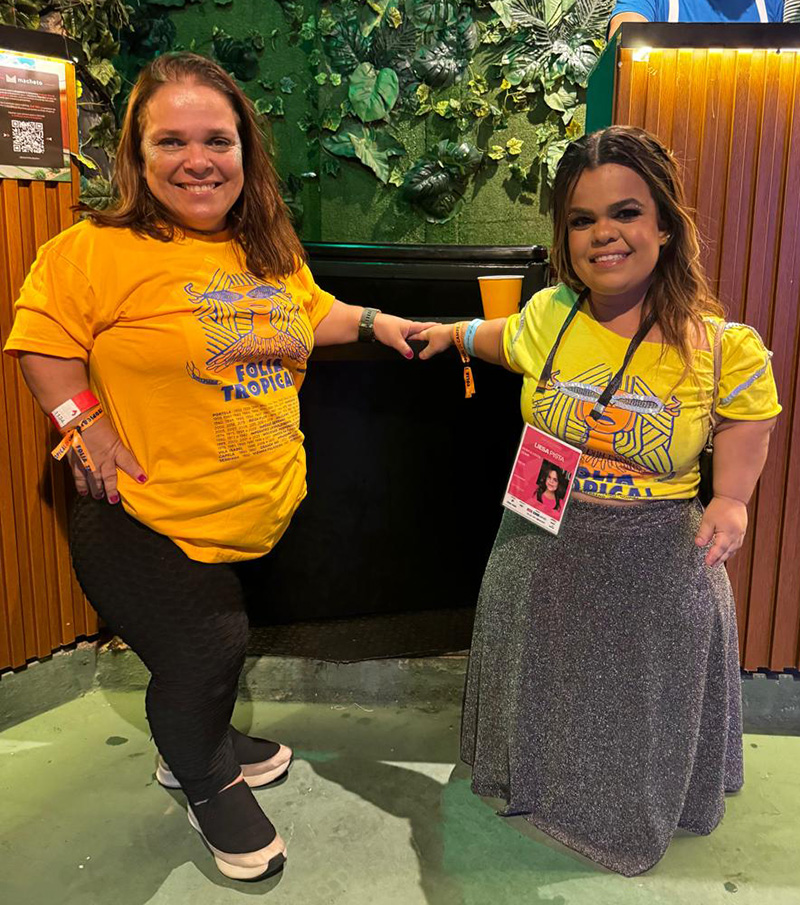
Rebeca alongside Kenia Rio, President of Annabra, an advocacy organization supporting the dwarfism community in Brazil.
